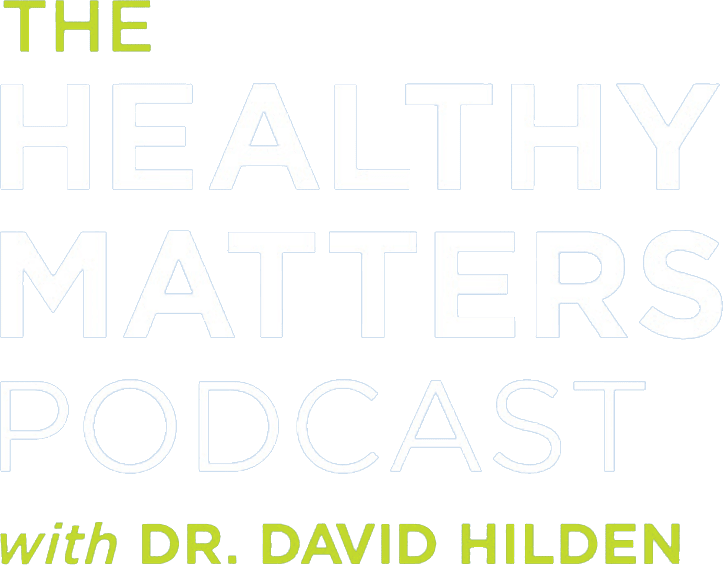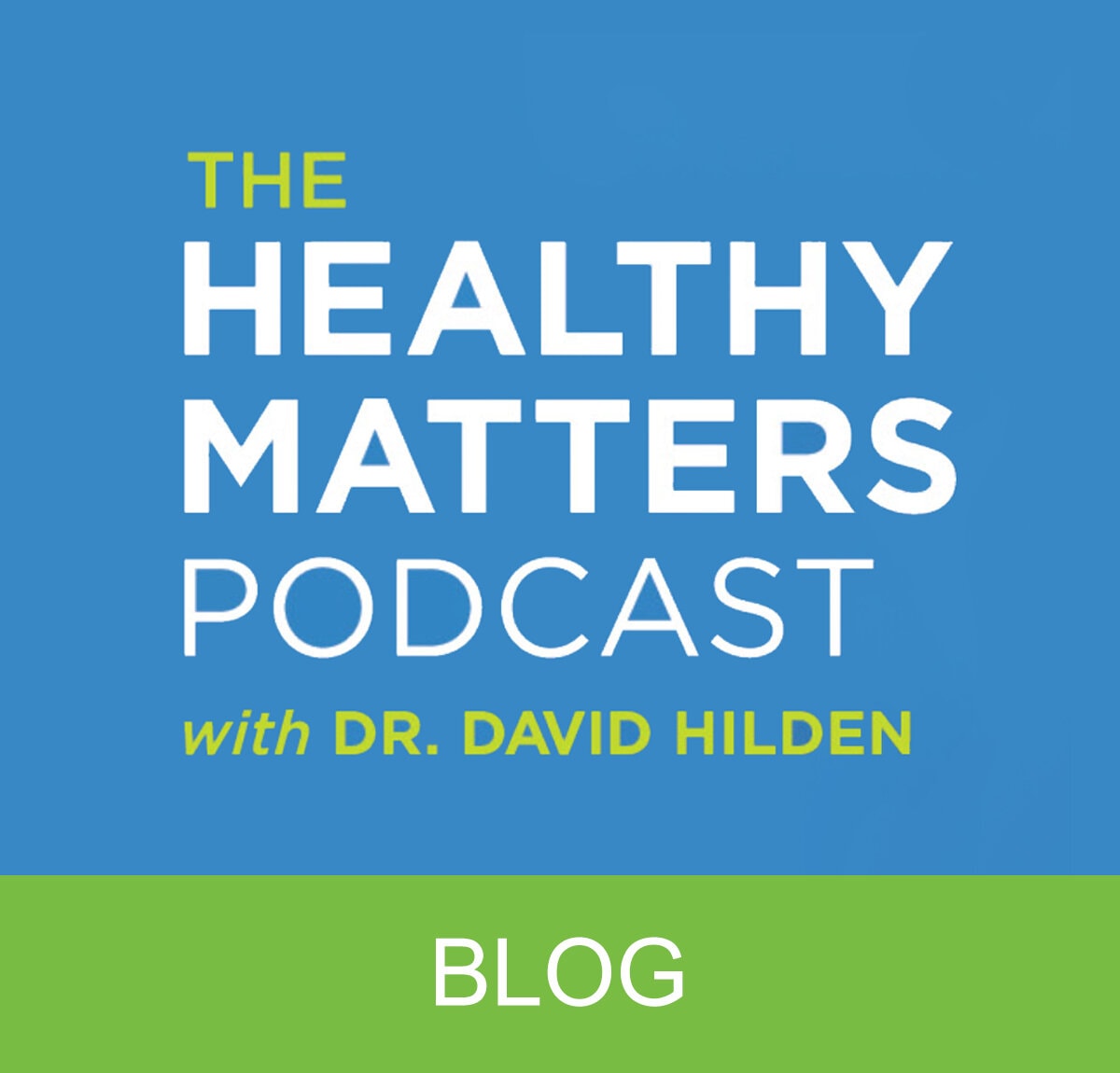Hilden’s House Calls – An AMA with the MD, MPH, FACP
It’s time to ask me anything (AMA) on Episode 3 of Season 2 of the Healthy Matters Podcast.
Miranda in St. Paul asked me about my own healthcare routine – and specifically, do I drink alcohol? Well, Miranda, self-care is important and no matter how busy we are, we should all take time to focus on our physical and mental health. I do work out at least 3-4 times a week, mostly running. I prefer running outdoors – even in the winter. Sometimes I do use an exercise bike we have in our basement. I also have an occasional glass of wine but refrain from drinking while exercising. All kidding aside, it’s not unusual for a physician to have a glass of wine with dinner or a cocktail now and then. But we’re no different than anyone else – we’re just as susceptible to alcohol abuse. Using alcohol medicinally and when you’re feeling stressed can lead to bigger problems, so it’s always important to ask yourself, “Do I want this glass of wine right now or am I just habitually reaching for it because it was a stressful day?” or if you have alcohol abuse problems, don’t drink. Give exercise a try and listen to some music you enjoy – that’s the best advice I can give to reduce stress.
Teddy in Madison is in his mid-forties and noticed his teeth and nails were becoming more brittle. We may grow wiser as we age, but parts of our bodies do physically change – including our nails, teeth, and even hair. Alex in Duluth is getting cold feet. Karen didn’t say where she’s from but no sweat – only a red face when she exercises. Listen to the podcast to hear my cool advice.
Carrie in Minneapolis is wondering if she should change her toothbrush after having the flu. The good news is that she’s already protected from the strain she just suffered through. Theoretically, it is possible for germs to live on your toothbrush when it’s wet. But here’s the deal – don’t share your toothbrush with your friends. Number One, it’s gross. Number Two, germs including bacteria and viruses and the like can live on those wet surfaces. ‘Nuf said.
I hope we alleviated concerns from Kevin in Lakeville ahead of his “hernia-ologist” appointment. What a brilliant new description for a hernia surgeon that led to a great discussion about the types of hernia surgeries. My gut tells me Kevin’s procedure will go just fine.
A listener from Georgia suggested an episode about celiac disease. Thank you, Jane! We’re working on it! Celiac disease is your body’s inability to process gluten, a protein that is found in many grains, including the big one – wheat. Watch to see more information about our podcast about celiac disease that affects so many people.
We tackle many other listener questions on this episode of Healthy Matters. High blood pressure, COVID, antibiotic resistance, and much more! If you have a health question, send it my way to healthymatters@hcmed.org.
Digesting the Topic of Processed Foods
Are your grain-threshing skills getting a little rusty? No worries, my friends! In Episode 2 of Season 2 of the Healthy Matters Podcast we’ll hone our healthy gastronomic choices when we learn about highly processed foods. We are joined once again by Dr. Kate Shafto, triple board-certified physician in internal medicine, pediatrics, and integrative medicine.
There are four basic levels of how food is processed, beginning with the most minimal of processing, (think of simply picking an apple and eating it) to the most processed of foods, (cereal, for example – a bunch of ingredients from a variety of processed sources that has been infused with stuff – perhaps vitamins, minerals and preservatives, mixed, fried or molded and baked and ready-to-eat on store shelves).
“Processing food is something that humans have done for a long time,” said Dr. Shafto. “What’s lacking from those highly processed foods a lot of times are the very nutrients that we need from the food that we eat – and fiber. Those are my top two that are lacking – fiber and micronutrients, vitamins, antioxidants, and minerals.”
Dr. Shafto is a big fan of fiber and explains why we all should be, too. In fact, our entire gastrointestinal tract was made to digest a variety of unprocessed foods, but unfortunately, during processing many nutrients and fiber are removed.
“Fiber is an unsung hero in our health. It is so important and the human body has been very well acquainted with fiber for as long as humans have walked the earth. It only comes from plant foods – you can’t find it in animal foods.”
What is the big deal about fiber – and what exactly happens when you eat it? She explains an amazing way fiber gives our guts more time for other important processes to take place.
“The fibers actually form kind of a film along the inner walls of our intestines so that the nutrients don’t get absorbed right away, so the microbes can do their thing and they can metabolize the different vitamins. hey can process different vitamins and minerals and other nutrients in ways that only our microbiota can do.”
She explained how fiber also slows down the absorption of sugar into the bloodstream, which is very important because humans don’t tolerate quick infusions of sugar very well. Good to know!
So grab a stalk of celery and sink your teeth into tidbits like these and more in Episode 2 of Season 2 of the Healthy Matters Podcast. If you haven’t already, also check out Season 1, Episode 20 of the podcast: Eating through the Ages, where Dr. Kate Shafto talks about how our food supply has changed over the past 100 years and the effects these have had on our diets and our health.
Pediatrics! Where it all begins…
Kids don’t come with a guidebook? In Episode One of Season 2 of the Healthy Matters Podcast we have the next best thing – Dr. Krishnan Subrahmanian, pediatrician at Hennepin Healthcare! We talk about RSV and other viral illnesses, early childhood development, reading and language development, and how to access your child’s pediatrician. (Warning: This is snot an episode for those who get queasy hearing the word “booger.”)
Dr. Krish – as he often is called – was a high school special education teacher before he became a pediatrician.
“The kids were incredible. They were amazing. They inspired me. They made me think, they challenged me. And I honestly loved my job as a special education teacher. My hats and heart go off to all the special education teachers out there. They do incredible work.”
This love of learning spills over into his work as a pediatrician, and Dr. Krish’s interest in brain development – especially at an early age.
“Actually 90 to 95% of brain development – neuronal connections – has happened by the age of five,” he explains. “And it leads us to think, ‘wait a minute, what are we doing in those early years to help support that brain development to get kids off to the best start?’ What this means is that even pre-birth in utero, brain development is starting, and neuronal connections in those first few months and years of life are growing every day.”
Dr. Krish explains how playing with children, talking to children, and singing with children helps form a brain that is more able to learn, more able to grow, and sets them up for success for the rest of their lives.
“There’s a type of interaction called serve and return learning,” he shared. “It’s the kind of thing that you see folks do all the time. ‘Hey, baby, how you doing? How’s it going?’ And then waiting for that little response, that smile or that cue back from the baby. That kind of communication pattern, giving a little bit to the baby, waiting for the return and, and ensuring that we do that repeatedly, really does help form brain connections and can begin right from the very moment that they join your family.”
While Dr. Krish and I talk about ways to relieve nasal congestion, reduce fever, and when to bring your child in to be seen by a physician he also gives this piece of advice for the well-being of children, which is very worthy of sharing:
“The greatest tool and gift we have for little babies and kids is an adult who loves them, is an adult who cares for them, is an adult who’s investing their time and energy. If you can spend yourself, your time, your energy, that will make the biggest difference.”
Wise words indeed. Thanks for listening to Episode One of Season 2 of the Healthy Matters Podcast!

